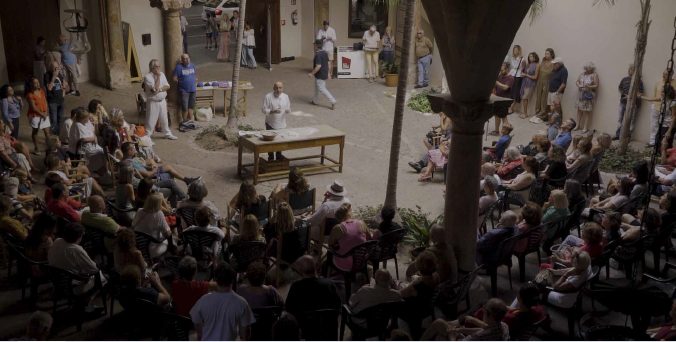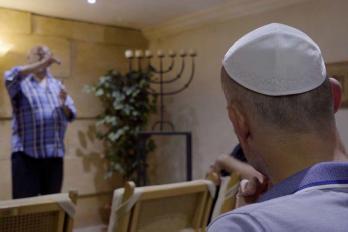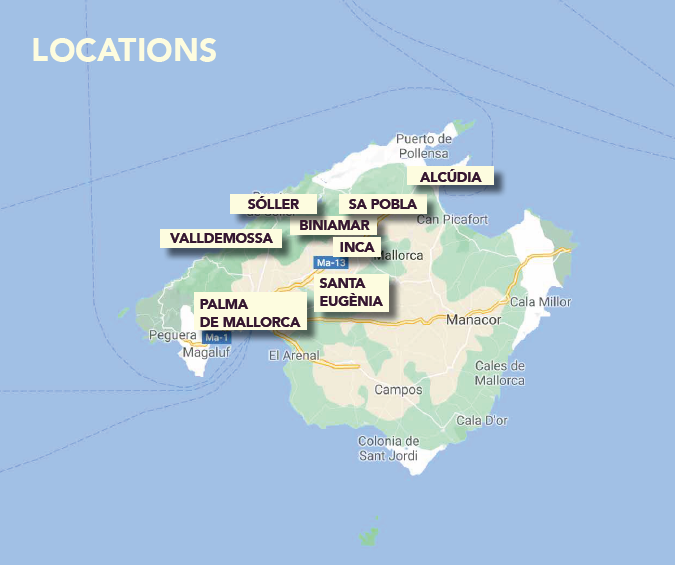
The Secret Jews of Mallorca
The Spanish island of Mallorca maintained a lasting and notable Jewish community dating back to the second century. Flourishing and accepted during both Muslim governance and following the Christian “reconquest” in 1229, Mallorca’s Jewish population faced a turning point in 1435. As a result of a series of anti-Jewish riots, they were compelled to undergo a mass conversion to Catholicism.
Some Catholics on Mallorca have been discriminated against for centuries because their surnames have a connection to their Jewish heritage. They not only endured stigma and humiliation: they were also deprived of fundamental rights as citizens.
While a few have been inspired to return to the faith of their ancestors, their recent entry into the leadership of the local Jewish community has caused an unforeseen controversy among its members. Are they the best suited to lead Mallorquin Judaism despite not having practiced their faith for centuries?
When the Inquisition decreed the expulsion of the Jews from Spain in 1492, there were no Jews – officially – left on this Mediterranean island. In 1435, the entire Jewish community underwent a massive baptism in order to save them from further persecution. But many converts – or “crypto Jews” – preserved the law of Moses. They lived secretly until 1691, when the “Autos de Fe” saw them publicly burned at the stake in front of the larger Mallorquin society.
Their descendants, the chuetas, are bearers of 15 surnames harshly stigmatized by the Church due to their Jewish past. Marginalized and subjugated, they were forced to marry between their same families for centuries – a dangerous breeding ground for the transmission of hereditary diseases, such as the “Mediterranean fever.” The trauma they suffered was silenced by an ironclad social taboo, fostered even by themselves, eager to permanently forget the dark past.
Despite the deep rejection, the traces of Jewish gastronomy can be seen in popular Mallorquin food, and it is even believed that world-famous exported products such as the “ensaimada” may have Jewish roots. The chueta used lard or sobrasada (pork sausage) in their preparation, to signify their fervent Catholicism and show that they had left behind the customs of their ancestors.
Dani Rotstein, an American Jew and producer by profession, landed in Mallorca and discovered a robust legacy not yet widely known by the rest of the world. Fascinated by his continuous discoveries, he began to offer guided tours through the alleys of the Jewish quarters of Palma.
Rotstein understood that this was not only about legends of the past: it is a story in current development. He met chuetas like the writer Miquel Segura or the chef Toni Pinya, direct bearers of the stigma who undertook the complex path of returning to the Jewish faith; or the young historian Laura Miró, motivated to recover history to pass it on to new generations who completely ignored it to date.
In the only synagogue on the island, there are already discrepancies due to the different degrees of religious observance, the absence of a rabbi, and the diverse ethnicities of its members. The arrival of the chuetas to community leadership opens new dilemmas. Their children are not Jews according to halacha (religious law), many still do not know how to speak and read Hebrew, and there are those who consider their presence on the front line as an act of performative visibility.
This documentary interrogates fundamental questions of human nature such as historical memory; identity and belonging; generational clashes; and the preservation of tradition.
Despite the unquestionable weight of the past, the documentary explains the history and the present based mainly on first-person stories. It Includes fragments of interviews and follow-ups to the subjects; dynamic footage of events that took place during the “Week of Jewish culture” in Palma; aerial drone shots that explore the geography of the island; and animations to help understand and visualize historical events, to give an updated touch to the story.
For more information or to arrange a screening go to https://xuetaislandthemovie.com/.












